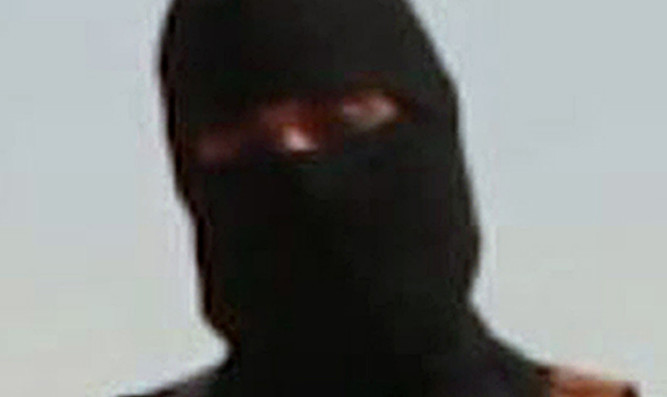The British terrorist known as Jihadi John has been killed in an air strike by US military, according to reports.
Sources close to the Islamic State (IS) stronghold of Raqqa in Syria said the Briton, whose real name is Mohammed Emwazi, was targeted by a drone during the operation last night. The Pentagon said it was assessing the information.
Emwazi is believed to be responsible for the deaths of several IS hostages, including Perth aid worker David Haines and Alan Henning.
Prime Minister David Cameron is to make a statement later today.
A Number 10 spokeswoman said: “We have been working hand in glove with the Americans to defeat Isil and to hunt down those murdering hostages.
“The Prime Minister has said before that tracking down these brutal murderers was a top priority.”
Emwazi came to notoriety in a video in August 2014 which showed the beheading of US journalist James Foley.
He also appeared in videos showing the killings of Mr Henning and Mr Haines, American journalist Steven Sotloff, aid worker Abdul-Rahman Kassig and Japanese journalists Kenji Goto and Haruna Yukawa shortly before they were killed.
Thursday night’s operation is being investigated by the Intelligence and Security Committee (ISC) which oversees the work of MI5, MI6 and GCHQ, after concerns were raised about its legal basis.
Rami Abdel Rahman, director of the Syrian Observatory for Human Rights, told the Press Association the drone strike “killed the British leader of Isis last night”.
He said sources in Raqqa confirmed the death, but that they were uncertain of the man’s identity at present.
Mr Mohammed Shafiq, chief executive of the Ramadhan Foundation said the reported killing was “a significant moment in the fight to get justice for David Haines, Alan Henning and all the victims of this evil man”.
He said: “The Ramadhan Foundation joins the victims of IS and their families in preferring him to have being captured alive so he would have seen justice in a court of law but understand why this wasn’t possible. Extra judicial killing over justice in a court of law should not become the norm in fight against terrorism.
“Mohammed Emwazi manifested the evil and barbaric nature of this terrorist entity called Daesh (IS) which has killed thousands of Muslims, Christians, Yazidis. There is nothing he said or stood for which would justify his barbaric crimes and actions.
“IS distort Islamic teaching to justify their violent crimes and it’s this ideology which we have been confronting and will continue to do. Terrorism has no religion and there can never be any justification or excuses for such actions.”
Mr Haines was executed in September last year, having been held captive for 18 months.
His daughter, Bethany, later said she felt the families of Emwazi’s victims would only feel closure “once there’s a bullet between (his) eyes”.
A video released a month later showed 47-year-old Salford taxi driver Mr Henning appearing to be beheaded.
Emwazi appeared in the videos dressed in black with only his eyes visible, and spoke with a British accent as he went on anti-Western rants to the camera while wielding a knife.
It was not until February this year that the jihadist was unmasked as Kuwaiti-born Emwazi, who had lived in the UK since the age of six.
It emerged that Emwazi had been known to British intelligence services, but managed to travel to Syria in 2013.
Pentagon press secretary Peter Cook confirmed US forces conducted an air strike in Raqqa last night “targeting Mohamed Emwazi, also known as Jihadi John”.
He said: “We are assessing the results of (the) operation and will provide additional information as and where appropriate.”
It comes as Kurdish fighters, backed by US-led air strikes, took the Iraqi town of Sinjar back from IS control.
Witnesses said fighters raised a Kurdish flag and fired celebratory gunfire in the town centre after freeing it from the terrorists’ grip more than a year after it was seized.
Kurdish fighters have also reportedly taken a main road near Sinjar which helps connect Mosul and Raqqa – key areas for IS.
